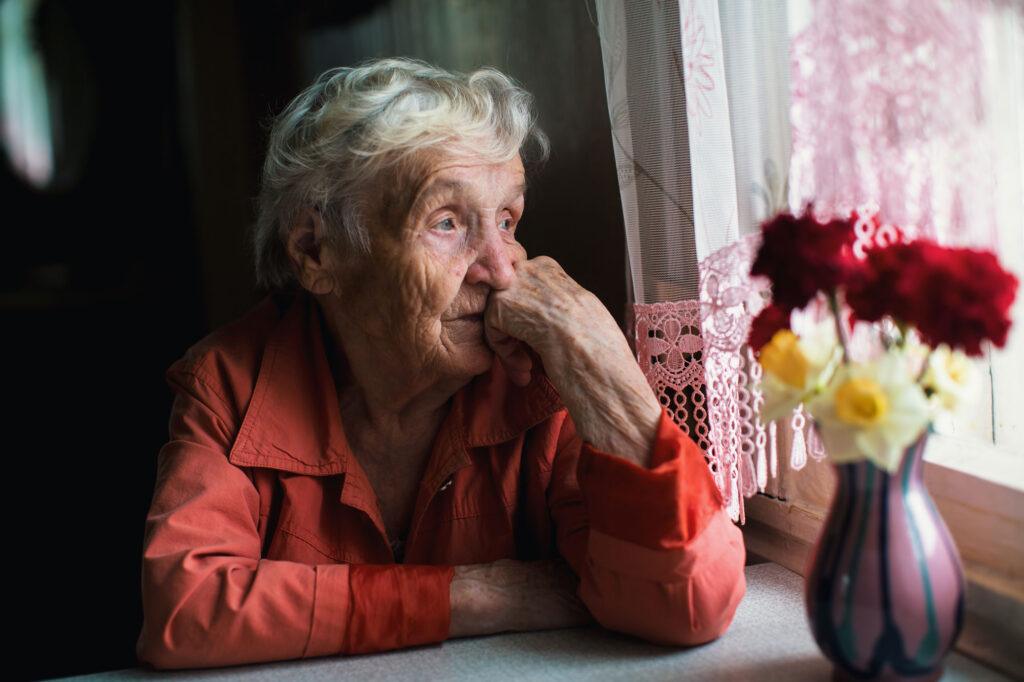By Cathy Jo Cress, MSW Associate Geriatric Care Manager Santa Cruz, CA
Although late-life depression is rampant among the elder population, it’s certainly not a normal part of aging. Rather it’s a serious but treatable illness that impacts those who might be struggling with chronic illness, the passing of time and the absence of loved ones who may have died or moved away.
According to the National Institute of Mental Health, of the 35 million Americans over the age of 65, about two million suffer from full-blown depression while another five million suffer from less severe forms of the illness. But because symptoms of old age often mask signs of depression, very few seniors are properly diagnosed and treated. And the consequences can be fatal. American Psychological Association statistics, for example, show that suicide disproportionately impacts older adults, with depression serving as the leading risk factor. There is a critical need for increased awareness of depression and a stronger understanding of the risk factors to help prevent suicide or mood-generated health issues in older adults.
Causes of Depression
Depression negatively affects quality of life, physical health and relationships with family and friends. It can also complicate the course of illness, slow recovery and compromise the impact of rehabilitation. Medical outcome studies have revealed that only serious heart disease had a bigger impact than depression on functional status and bed days, while only arthritis had a greater association with pain. So what causes it? The difficult changes that many elderly individuals face – such as the death of a spouse or medical problems – can generate depression, especially in those without a strong social network. Unfortunately, comorbid illness is the hallmark of depression in aging adults: physical illness can bring on bouts of depression, which, in turn, might lead to a weakened physical condition that impedes recovery. This ultimately increases the use of healthcare resources and reduces the effectiveness of rehabilitation in older patients suffering from stroke, Parkinson’s disease, heart disease and fractures, to name a few.
Statistics show that depression is highest among those in nursing homes and primary care settings and is more likely to affect women, persons who are unmarried or widowed, individuals experiencing stress or those with poor support systems.
Identifying the Depressed Adult
As defined by the fourth edition of the Diagnostic and Statistical Manual of Mental Disorders of the American Psychiatric Association, the symptoms of depression might include a pervasive sad mood that lasts longer than two weeks or markedly decreased interest or pleasure in activities, along with three or more of the following symptoms: sleep disturbance, decreased energy, poor concentration, appetite disturbance or problems, psychomotor retardation or agitation, feelings of worthlessness or guilt and suicidal ideation. In the older adult, these symptoms might surface in the form of physical complaints including pain, fatigue, appetite changes or sleep problems.
The key to identifying depression or other mood changes is to determine how the aging adult feels and functions. Listen carefully and observe closely. When an individual becomes clinically depressed, there are typically changes in appearance and alterations in behavior and activity level such as diminished energy and unexplained fatigue. There could also be a decline in grooming and hygiene and dwindling interaction with family and friends. Evaluate that person’s living arrangement, family relationships, social network, functional abilities and other factors that could determine treatment and management strategies. Then ensure that they are screened for common health issues that could impact mood such as thyroid problems, nutritional deficiencies or dehydration.
It’s important to remember that many seniors might be reluctant to discuss their feelings or concerns due to fear of stigmatization. And even a primary care physician might mistake some common signs of depression – irritability, low motivation, arthritis pain – as part of the natural course of aging. It will take time and patience to identify and sort out the symptoms. But changes can occur quickly and may have significant consequences so there should be measures in place to help assess and treat the aging individual.
The Aging Boom
Depression is a prevalent and perplexing problem in the elder population. In the 1990s, rates of diagnosis in Medicare beneficiaries increased dramatically, along with a spike in anti-depression medications. Although there has been a dramatic increase in depression diagnosis and treatment in the last decade or so, significant barriers still remain. With the massive Baby Boomer generation set to soon retire, it is necessary to address the gaps in information, training and practice regarding depression in the aging community.
Depression is not a normal part of aging and can result in a diminished quality of life. Family caretakers and aging professionals must learn to better spot the signs of depression in order to help seniors remain happy throughout their golden years.
Our Advocare Care Managers are trained, licensed and credentialed Nurses or Social Workers who have experience recognizing the signs and symptoms of depression. We strive to assist our clients to maintain their social engagements and relationships. We can develop a plan to reduce the changes of a senior becoming isolated or lonely. The Advocare Care Manager will provide advocacy and care coordination for any client who might be struggling with signs of depression or emotional decline.
Advocare Care Management is a practical resource for assisting caregivers and seniors. We help you care for an aging loved one with various assessments, resources, and advice. Our team covers South Florida, including Palm Beach, Broward, and Miami-Dade counties. We are available 24 hours a day and ready to give you the assistance you need. Contact us now to learn how we can simplify things when it comes to caring for an aging loved one.
The article is reprinted with permission from Aginglife.org. Advocare Care Management is the preeminent resource for caring for an aging loved one.

